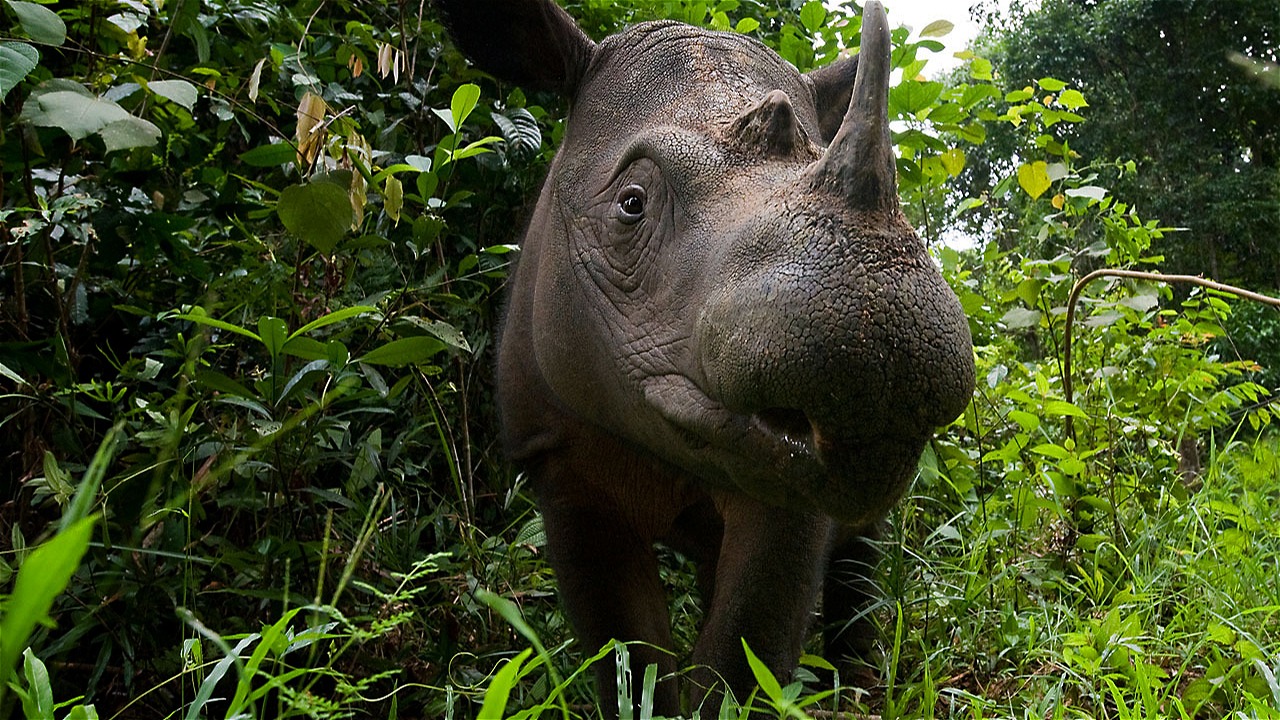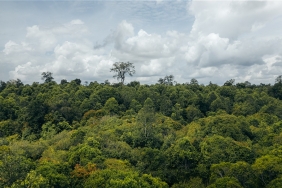WWF INVITES UNSYIAH TO INCREASE RESEARCH ON SUMATRAN RHINOS
WWF Indonesia invites students and lecturers of Syiah Kuala University to increase research on Sumatran rhinos, one of whose habitats is in the forests of Aceh. One way to stimulate the role of the academic community is to collaborate in conducting a National Seminar on Rhino Conservation (Dicerorhinus sumatrensis), Thursday (4/08/2016), at the Unsyiah FMIPA Hall, Banda Aceh.
The seminar, which was opened directly by the Rector of Unsyiah Prof. Samsul Rizal, M, Eng, presented speakers including Yuyun Kurniawan, Rhino Coordinator WWF Indonesia, Dr. Muhammad Agil, Academician from Bogor Agricultural University, drh Marcellus Adi CTR, senior practitioner of rhino conservation, Aceh Historian, Drs Rahman Kaoy who is also a member of the Aceh Customary Council (MAA), Dedy Yansyah, FKL Program Coordinator, Deputy Chairman of the Aceh House of Representatives, T Irwan Djohan and Project Leader WWF Indonesia Northern Sumatra Program, Dede Suhendra. Participants came from government representatives, NGOs, lecturers and students.
In his remarks, the Rector of Unsyiah said that, related to the conservation of Sumatran rhinos in the Aceh Forest area, it needs to be increased again, be it through research or socialization to the community and the younger generation, especially students.
"We from Unsyiah really appreciate the WWF for this collaboration, especially related to rhino conservation. Talking about research, we also talk about funds. Although our funds are very lacking, we still have enough students or human resources to carry out Sumatran rhino conservation activities in Aceh," he said.
The Rector of Unsyiah hopes that Unsyiah students, especially those involved in the environmental world such as those studying at the Faculty of Mathematics and Natural Sciences Biology, need to take a strategic role in rhino conservation or other animals.
"We from Unsyiah will also continue to help and contribute to jointly protecting and sharing information related to the conservation of Sumatran rhinos in particular," said Samsul Rizal.
In this seminar it was revealed that there are still many data and information gaps related to Sumatran rhinos. "Currently there is no clear population data, making it difficult for us to develop action plans for Sumatran rhino conservation," said Yuyun Kurniawan from WWF Indonesia.
Meanwhile, Dr. Muhammad Agil expressed his concern about the continued decline in rhino populations in the wild. In addition to facing the problem of small populations, rhinos also face problems with diseases that affect their fertility so that rhinos become difficult to breed.
"Indonesia must revolutionize the conservation of Sumatran rhinos. That now must be considered other interventions such as inbreeding to increase the population. Here the role of scientists is very necessary," said Agil.
Rhinos have long been the target of poaching for their horns as traditional medicine. Over the years the poaching of Sumatran rhinos for their horns or other parts has also become the main reason why the population of these animals is decreasing, then the loss of forest habitat for Sumatran rhinos is also a major threat to the survival of the remaining Sumatran rhinos. ""But currently there are very few reports of poaching in the field. Maybe it's because it's getting harder to find rhinos,"" said Yuyun.
According to Yuyun, ecological and sociocultural approaches are the main keys in rhino conservation efforts. Currently, the area that is home to Sumatran rhinos has been increasingly displaced by invasions by people around the animal corridor. "It cannot be denied, but at least by providing good and correct information, people will also get education related to rhino conservation," he said.
"Currently rhinos are animals that get a lot of attention from the world because their population is decreasing day by day. Javan rhinos and Sumatran rhinos no longer belong to the National Park, no longer belong to Indonesia, but to the world. Do we still not care?" said Yuyun Kurniawan.
As is known, the Sumatran Rhino, also known as the Hairy Rhino or Two-horned Rhino (Dicerorhinus sumatrensis) is a rare species of the Rhinocerotidae family and is one of the five remaining rhino species.
Alert's Dr. Marcellus Adi shared the fact that few decision-makers and the public in Indonesia know about rhinos. "Many people don't know which is the Sumatran rhino and which is the Javan rhino. So there is very little support for rhino conservation in Indonesia," he said.
Irwan Djohan said that the Aceh legislature provides support for saving forests and animals in Aceh and it takes hard work to convince politicians and decision makers to budget for conservation activities in Aceh.





